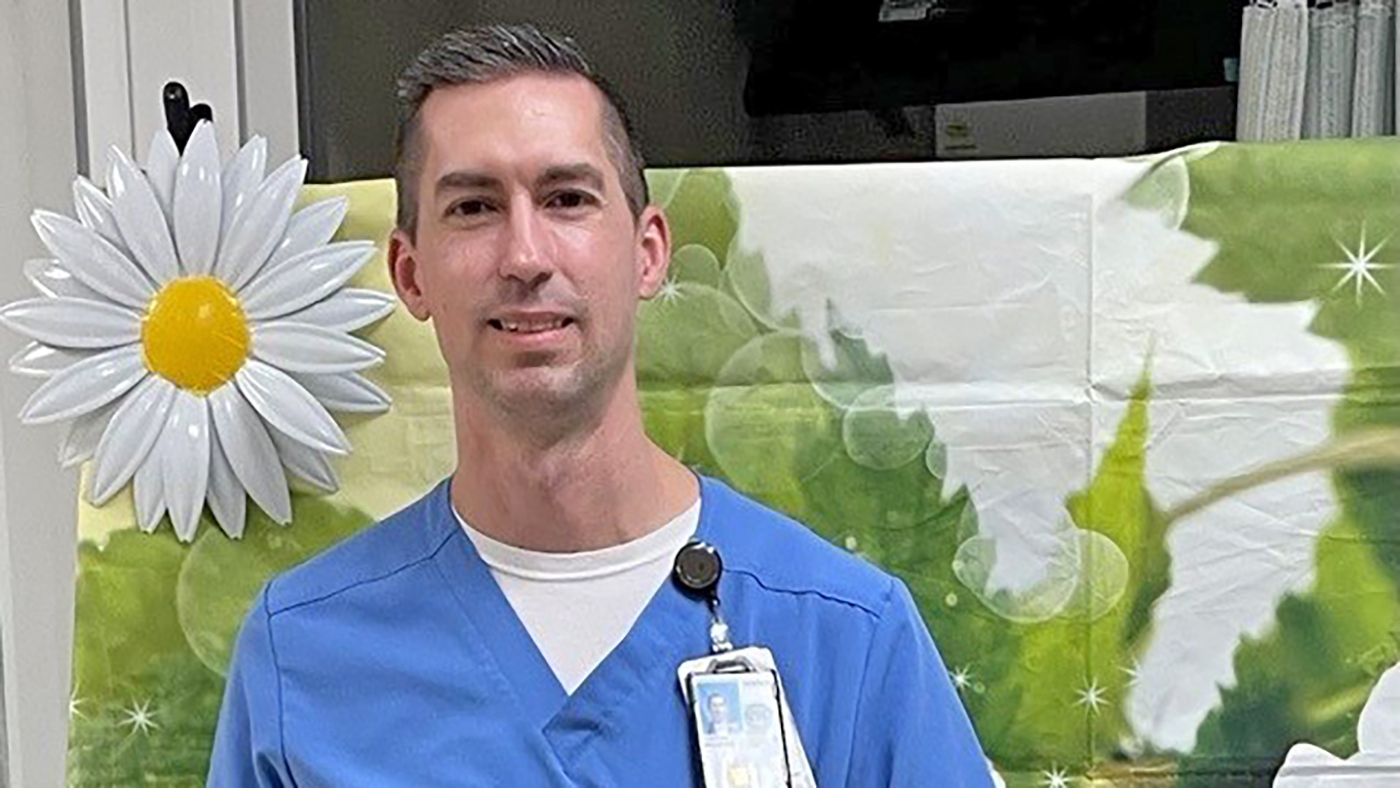Who knew it would be his patient’s darkest moment?
It was a typical Thursday afternoon routine. This was nothing new for a seasoned registered nurse working on the surgical intensive care unit. Especially someone like Andrew George (pictured above).
The Nashville native had been performing this routine since he started as a health tech at Tennessee Valley VA in 2009. By 2014, George had worked his way up from a health tech to a licensed practical nurse and finally to a registered nurse with clinical certifications.
The hallways of the surgical intensive care unit at Nashville VA pulsed with life and bustled with energy as nurses gently woke their patients to prepare them for upcoming procedures.
“Before surgery, you have to give your patients a morning shower,” George said. “I got his stuff ready, walked him down to the unit’s shower and he came back to his bed. Maybe like five minutes later he says, ‘Man, my chest is starting to hurt a little bit.’”
Electrocardiogram signals were elevated
George’s patient, Veteran Neil Byalick, was in for a cardiac procedure, scheduled for an hour later. George explained to Byalick that he probably exerted himself too much walking down the hall and to take a few minutes to catch his breath.
While George attached Byalick to the bed side monitor to evaluate his vital signs, he noticed intermittent heart rhythm changes on the monitor.
Byalick was still experiencing chest pain, so George grabbed an electrocardiogram to evaluate the electrical signals of the heart. He saw his patient’s ST segments were elevated, indicating a myocardial infarction—a heart attack. George alerted the overnight physician and the surgical intensive care unit staff of the emergent situation.
George remained calm and quickly administered nitroglycerin to thwart the pain and cardiac episode before bringing Byalick to the catheterization lab for further diagnostic imaging and treatment.
“He was kinda scared at that time. I pretty much stuck with him the whole time,” George recalled.
Because of his actions, George prevented the heart attack from progressing and ultimately saved the Veteran’s life. Had it not been for George, Byalick may have died on the operating table that morning.
Patient nominated him for DAISY Award
Byalick believed the Nashville native deserved more recognition for his efforts, so he nominated George for the DAISY Award, an international award given to nurses, nurse leaders and nursing teams who provide compassionate, above-and-beyond health care to a patient, patient’s family and visitors.
“I started to have severe problems not knowing what was happening to me. George came to my rescue and pulled me from my darkest moment,” Byalick wrote in the DAISY Award nomination. “His calmness and great skills helped me stay calm and know that I was going to be okay.”
George recalled feeling shocked and surprised by the award and was even more delighted to see Byalick among the crowd of nurses and doctors. He felt the efforts were a result of cross-functional team collaboration.
“It’s nice to get an award when you’re just working and doing your everyday routine. It’s very encouraging to stick with it. I’m very fortunate and I really like VA,” George said.
Byalick wrote a statement that resembles the very core of why many individuals like Andrew George choose to enter and remain in the health care profession: “I truly believe that Andrew is why I’m here today.”
Topics in this story
More Stories
Watch the Under Secretary for Health and a panel of experts discuss VA Health Connect tele-emergency care.
The 2024 National Veteran Suicide Prevention Annual Report provides the foundation for VA’s suicide prevention programs and initiatives.
Theranostics is a specialized field of nuclear medicine that uses a two-pronged approach to diagnose and treat cancer.






